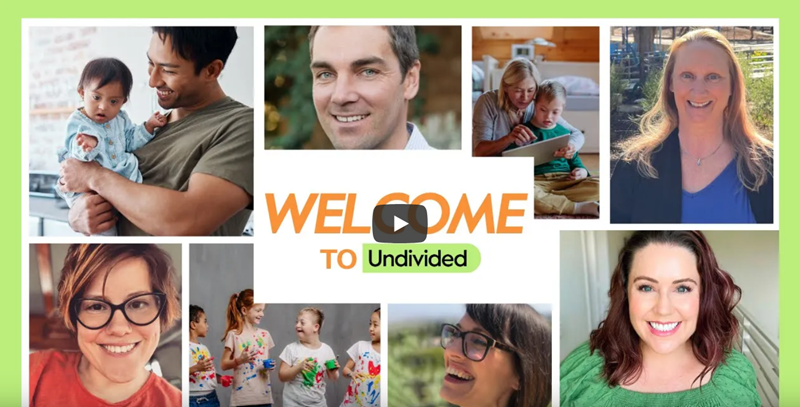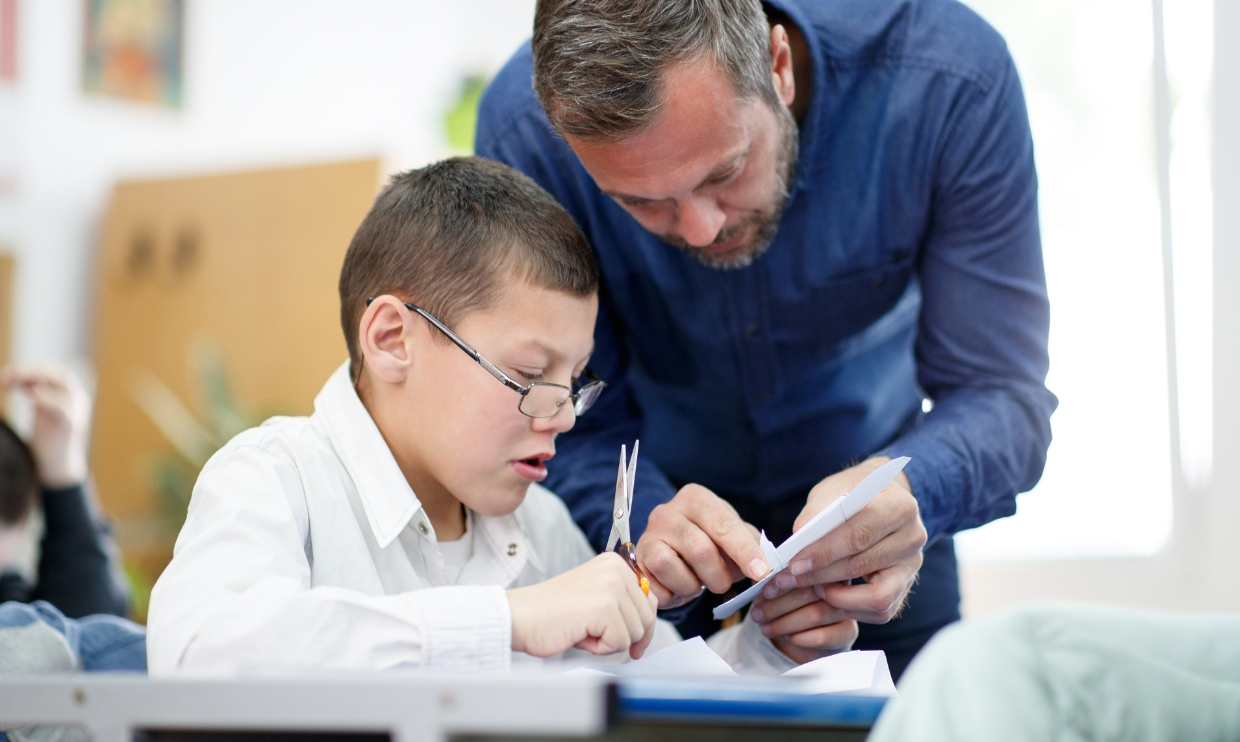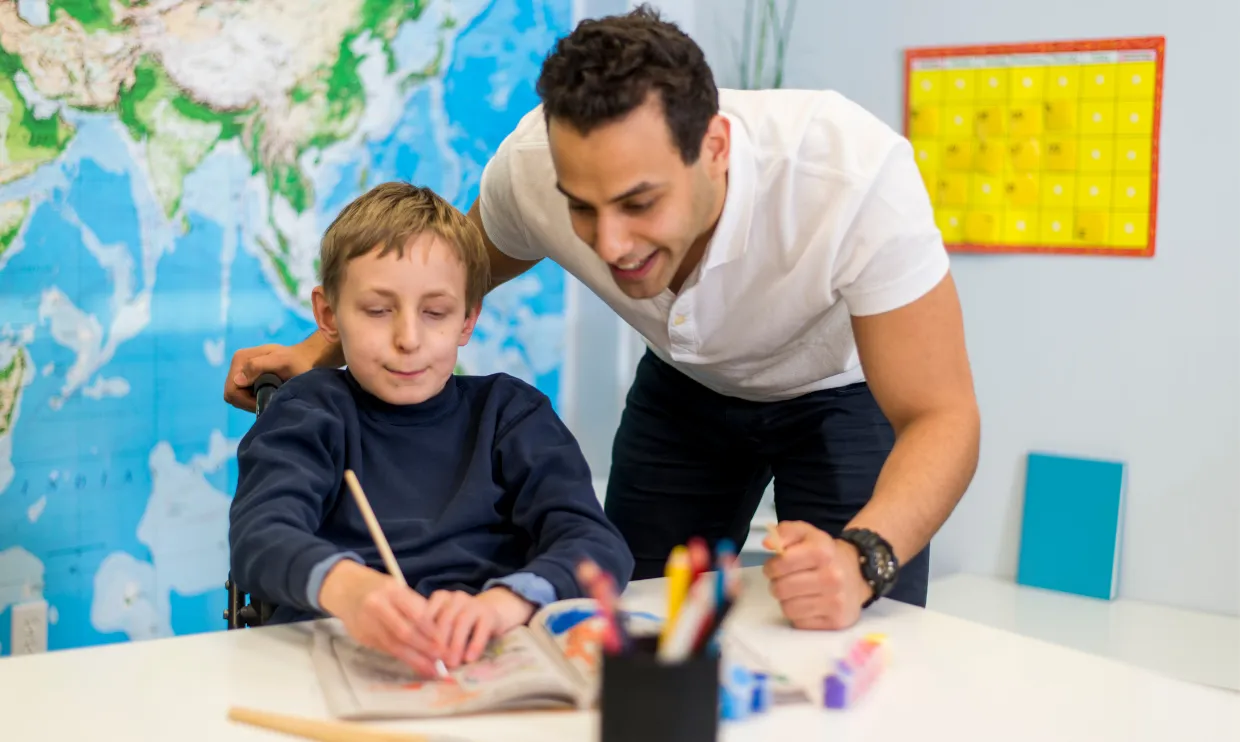Seeing our kids struggle to socialize, make friends, and find a sense of belonging is one of the hardest things to see as parents. And for those of us with kiddos who have developmental disabilities, this struggle is something we face quite often — and it can stick around through school and beyond. We all want to help our kids; we want to see them make friends their own age, rather than spending most of their time with adults like teachers, aides, and therapists.
But for many of our kids, certain social situations may feel extra uncomfortable, challenging or frustrating, especially if they have a harder time understanding how social context impacts the “hidden rules of behavior” (something neurotypical kids learn quicker by picking up on social cues around them). While helping our kids develop social skills and make friends, whether that’s through facilitating a playdate or writing a Social Story about making friends, our goal isn’t to change or make them “fit in” and be “just like other kids,” but to help broaden their perspective and honor who they are as well.
As parents, we can do this by making sure they have equal opportunities to participate in extracurricular activities that interest them, like band or drama (with appropriate support); facilitating peer relationships and opportunities for socialization (especially in middle and high school); writing neurodiversity-affirming Social Stories to help them understand events taking place in their lives as well as social norms and how to interact with the world around them; and more. Let’s dive in!

What is a Social Story? (And how do we write one?!)
If you have a child with a disability, chances are you’ve some familiarity with Social Stories. A Social Story is a simple book individually created for a particular child that addresses a social convention that they may find challenging, such as asking a friend to play, going to the dentist, or preparing for an upcoming field trip. But what makes a good Social Story?
We sat down with Carol Gray, the world-renowned creator of Social Stories™, to break down how she developed the practice, her 10 criteria of a Social Story, what you can do when faced with a poorly executed social script (hint: this can be an opportunity to talk to your team about affirming your child’s neurodiversity), and more. Read What is a Social Story? Featuring Carol Gray.

Want to write your own Social Story but not quite sure how? Follow along as we create our very own Social Story using Carol’s guidelines — with a fillable template and a sample Social Story. And if this guide helps you create your own, we’d love to read yours too!

Helping our kiddos belong
For many of us, one of the biggest challenges our kids face, especially as they get into their teen years, is the absence of authentic friendships. You may find yourself asking questions like, “What if my child has very different interests from other kids their age?” or “What if no one asks them to play?” or “Will they ever be invited to a birthday party?”
To find resources about building meaningful friendships and social opportunities for our kiddos, both in and out of school, read our article Socialization and Inclusion: Nurturing Authentic Peer Relationships. Does your kiddo need a little extra support in school when it comes to making friends and socializing? Read 4 Ways to Help Our Kids Socialize and Make Friends.

One Undivided parent shared with their Navigator, “Undivided is an amazing resource for parents of children with disabilities. The Kickstart program gave me a fantastic preview of the wealth of resources and expertise they offer. My navigator was incredibly helpful, providing me with great information on SDP, IHSS, and other general supports. I’m really excited to join Undivided and have a partner to help me navigate the often confusing world of benefits and services for my child.”

Undivided Conversations: Social Stories with Carol Gray
Join us July 19 at 12:00 p.m. PDT as we dive in with Carol Gray, consultant to children, adolescents, and adults with autism, and the creator of Social Stories™, as she explains the origins of Social Stories™, shares tips for writing effective ones, discusses the best times to introduce them into your child’s life, and more. Tune in at noon Friday for the stream on our Facebook page!
Office Hours with Adriana Roze
On Wednesday, July 24, 12:00-1:00 p.m. PT, Undivided Research Lead Adriana Roze will be available for Office Hours, where she’ll answer questions about working with Undivided’s research team to find your child a new provider, therapist, school, social-recreational class, or other program that meets your needs. Bi-weekly Office Hours are virtual Q&A sessions with experts that are open to Undivided members only, so if you’d like to attend, sign up here to begin your free Kickstart!

- What is a Social Story, and why create one? Hear from Social Story creator Carol Gray on our Instagram→
- VR and gaming can give our kids opportunities to socialize. Learn more from associate research professor Amber Rowland on our YouTube channel→
- What are your favorite socialization resources, either online or in your local community? Join the discussion in our private Facebook group for parents→
- It’s Disability Pride Month! Connect with us on LinkedIn for resources and news in the disability community→
- Looking for social skills classes, therapy providers, and other socialization resources near you? The Undivided Research Team can help you find what you need! Get started→





























